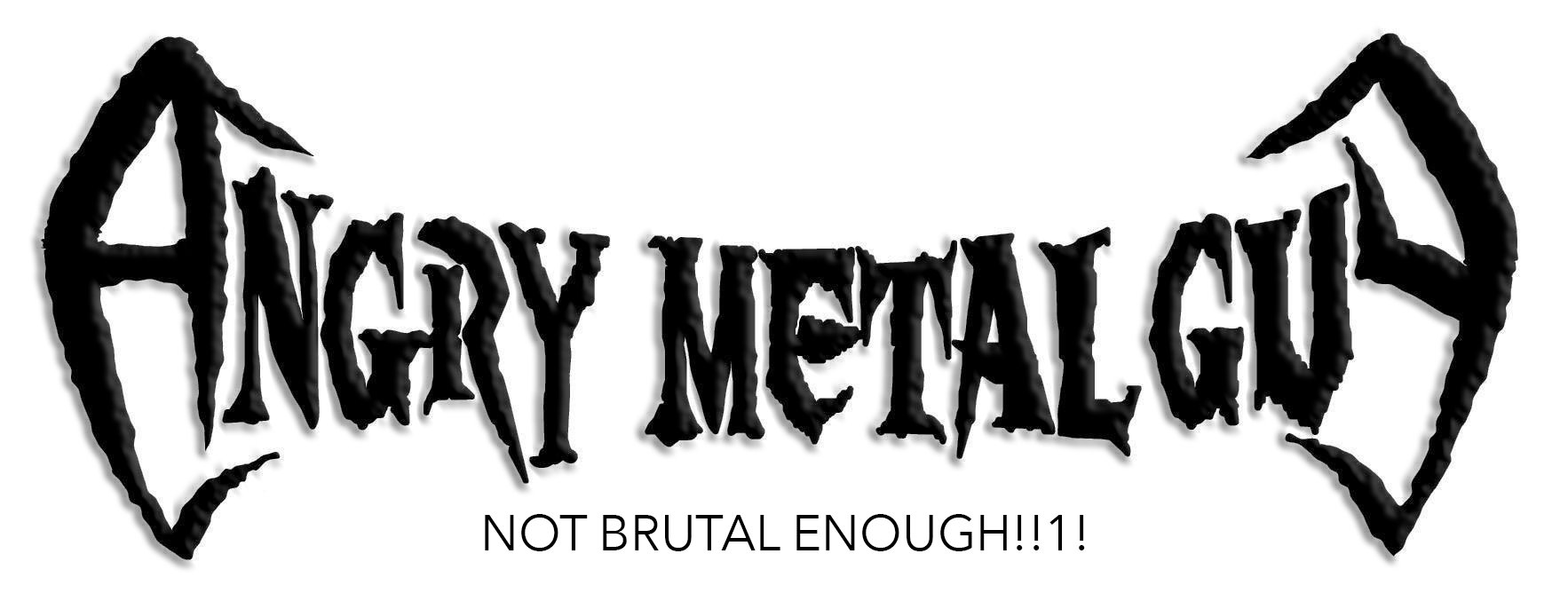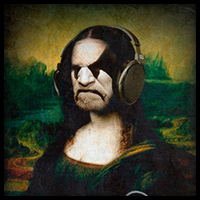A couple days ago Iron Maiden released its 16th studio album. This new platter is a double-disc monstrosity by the name of The Book of Souls, and now that I’ve received my physical copies, I’m going to be re-listening to it a dozen times with lyrics in hand. So, while we’re waiting on this I’m taking advantage of the moment to do something I’ve wanted to do for a very, very long time: a huge Iron Maiden retrospective, spanning the band’s entire studio discography. Here’s the third installment. [And here’s the first and second.]
#9: Brave New World [2000]: In spite of having felt like Blaze was treated unfairly when he was kicked out of the band1 and grumbling about the way the whole thing went down,2 I quickly quit caring and got absolutely psyched for Brave New World when it dropped. I mean, it’s not like I didn’t want Bruce and Adrian in the band! Having been a fan of the band since 1988—but having been 6 in that year—2000 was the first time that Maiden released a record in my adult life. The weekend that Maiden played Minneapolis and I got to see them for the first time was one of the absolute best of my life. I knew all the lyrics to all the songs, had a sore neck for days afterward, and witnessed one of the best live bands in the history of music knock out a set list that was immortalized on the band’s best live record and video: Rock in Rio. (Fight me.)
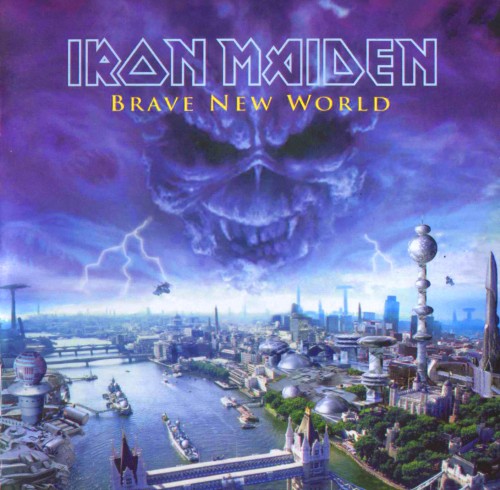
With all that nostalgia attached to it, though, Brave New World doesn’t quite nail it with the same passion after 15 years. While I still think it’s the best production of the post-reunion records (though, A Matter of Life and Death has the best mastering), the album suffers a little bit from what all modern Maiden albums suffer from: a lack of editing. While it has a couple of tracks around 4 minutes—both Smith and Dickinson collaborations, “The Wicker Man” and “The Fallen Angel,” and the Gers burner “The Mercenary” clocks in at 5—the average song length is a lot closer to 7 minutes than 4. While song length isn’t always indicative of song quality, a few of these songs drag (see: “The Nomad” and “Dream of Mirrors”).
The long run-time and a couple of clunkers aside, though, Brave New World is a worthy Maiden album, and a statement of how things would work going forward. Genuinely great songs litter the record, like “Ghost of the Navigator,” the proggy and actually, in retrospect, kind of bonkers “Out of the Silent Planet,” as well as Dave Murray’s token addition “The Thin Line between Love and Hate.” And all that without mentioning the great “Blood Brothers” (and its 700 choruses) and my personal favorite track on the album “The Fallen Angel,” which has amazingly only been played live a handful of times despite being one of the most obvious live tracks the band has ever produced! Also bonkers, honestly.
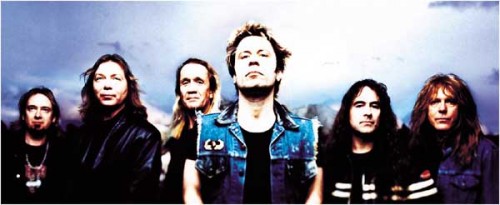
If I had to pick a best record from the nu-Bruce period, it wouldn’t be Brave New World, but I do think that this album was a powerful statement and one that helped to revive Maiden nostalgia that has driven them to the status of Gods amongst Metal Mortals that they have today. While the band themselves clearly came out against being a hits jukebox, the reunion made it cool for pop stars and others to claim their love of the band. And twenty years after the release of the band’s debut record, Brave New World showed that these guys still had it in the face of adversity, band breakups, and a world that had given up on metal for a decade. I still have the banner for Brave New World on my wall. I nostalgia this record pretty hard.
#8: Iron Maiden [1980]: If ever an album was unfairly maligned (that didn’t contain Blaze Bayley), it’s Iron Maiden. Listening to this album is like listening to a time machine: everything about it screams “debut record” and “shoestring budget,” but it’s got that pizzazz that reviewers like me crave when listening to unknown bands. This was a band who was on the edge of blowing the world out of the water with their unique approach to heavy metal.
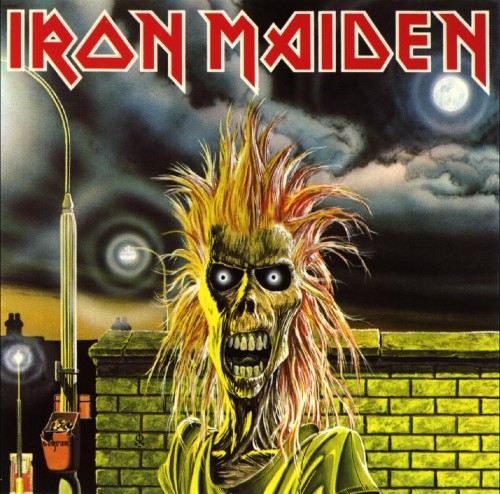
The biggest strike against this record is really the production, which really is the worst the band would have until after Martin Birch hung up his headphones. Producer Will Malone has been pretty roundly dissed by everyone in the years since its release, and rightly so, the record was rushed and Malone was apparently pretty checked out during the process. He appears to have had no idea how to produce a band that sounded like this, and it doesn’t have nearly the breadth and punch that its follow-up has. Nor does Iron maiden feature any of the band’s most obvious, top-flight tracks. “Phantom of the Opera” and “Transylvania” are the two songs that share the most with the band’s later sound, but generally, Iron Maiden feels like the band in its earliest of phases, as demonstrated by the not-so-stellar “Charlotte the Harlot,” the ’70s stoner ballad of “Remember Tomorrow” and the great, but vacillating, “Strange World.”
But as a whole? Iron Maiden was a cool and sophisticated album. It flows well, and it’s the kind of record you put on just to let it pop. Harry’s unique bass approach and the different guitar approach of Dennis Stratton—who admittedly was a lot more rock than metal—combine with Clive Burr’s blues and jazz influenced feel and Di’Anno’s punky vocals to form a raucous package. Tracks that I’ve heard a hundred times like “Running Free” and “Sanctuary” still hold a lot of charm after 35 years, and the energy is absolutely infectious.
But it’s not just the energy that’s good here; as far as I’m concerned, Steve Harris’s bass approach on Iron Maiden is the first chance to hear the sound that would go on to revolutionize heavy metal. One of the reason I’ve always found debates like Priest vs. Maiden to be so completely nonsensical is that they’re bands who did such very different things. While most of the New Wave of British Heavy Metal was firmly rooted in the 1970s hard rock scene, Steve Harris was always a progger. His biggest influences were the likes of Genesis, Wishbone Ash, and Jethro Tull, and this shows in the way that he thought about composition. While the other British bands were primarily writing from guitar, Harris was the primary writer in the band in the early days, and it’s this bass driven writing that creates a riffy sound. On Iron Maiden it’s often the bass guitar that’s doing the interesting stuff or the guitars are mirroring what Steve is doing. His riffy, energetic approach would come to define most of Maiden’s best stuff in the early days, and I think it changed the nature of writing in heavy metal as a whole. But the very nature of the band’s approach to songwriting changed at some point in the 1990s, when Harris’s style morphed away from this bubbly, energetic feel into something much more traditional.
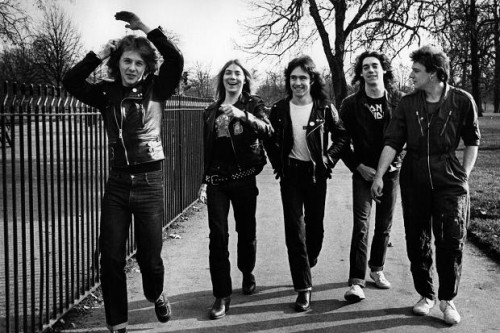
The combination of energy and unique, bass-driven composition makes Iron Maiden a truly fun record to listen to after all these years. Whenever I meet those old Maiden fans who hopped off the bandwagon after Killers, I have a certain amount of sympathy for it. The band really did go through a huge change with the years, the change in personnel and a very different approach. Listen to Iron Maiden next to Somewhere in Time with no prior knowledge, and you’d guess they were a different band. And, in a lot of ways, they really were. But the most defining parts of their sound are on demonstration here; addictive, raw, and fun.
#7: The Number of the Beast [1982]: You all probably know the story of The Number of the Beast, the introduction of Bruce Dickinson—who British fans dubbed “The Air Raid Siren” (which was pretty accurate, actually)—and the band’s decision to really push themselves onto the road, particularly in the USA. Looking at their tours from this time is incredible. These guys played the boondocks in rural Wisconsin and went through dozens of stops. This album is one of those records that has the “new vocalist” x factor that bands get when they reboot and the material here is a transition from the Killers era to what I think most people see as the “Golden Age” in Iron Maiden’s ridiculously long and storied career. It’s also widely considered among European fans as Maiden’s best album ever.
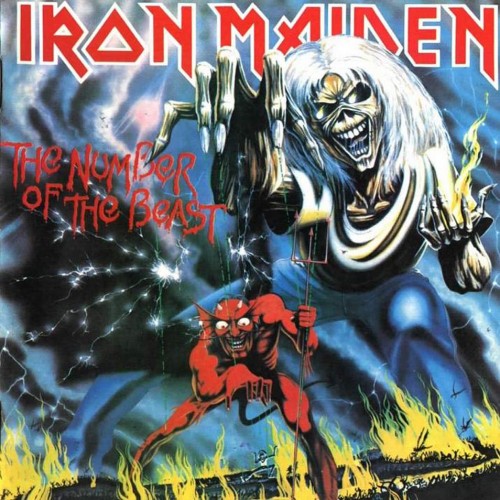
The Number of the Beast, for me, is a record similar in nature (though definitely not in quality) to Fear of the Dark: known more for its highest points, than its consistency. Songs like “Run to the Hills,” “The Number of the Beast” and “Hallowed Be Thy Name” are stratospheric tracks which showed the band developing into what they would become. “Run to the Hills” has gotten a bit of a bad reputation over time because the band themselves have often commented on how sick and tired they were of playing it, but it’s undeniably great. The memorable drums and the razor sharp chorus guaranteed that it would be a crowd favorite forevermore. Similarly, the title track possesses a chorus which is unforgettable, and when it hit in the USA and drove the Christian right absolutely apeshit, half of the band’s marketing job was being done by women with high collared shirts, enormous glasses, and short-cropped hair calmly talking about SAAAAATAN! Finally, and I think rightfully, “Hallowed Be Thy Name” is likely the best Iron Maiden song of all time. This track simply encompasses precisely the feel that we’ve all slavishly craved from the bad ever since: heavy, epic, and it is still—after all these years—an immense live song.
With all the superlatives one can slather on these highlights, though, the rest of the album pales a bit in comparison. The album opens with “Invaders,” which is my least favorite song on the record, and a strange introduction to Dickinson for fans unfamiliar with the band’s vocal change. “Children of the Damned” is an undeniable deep cut that’s gotten some love on recent tours, and I love “The Prisoner” for its chorus, but the other tracks simply don’t gel quite right. Instead, The Number of the Beast was contextually an important and even revolutionary album, and it certainly was a flag in the ground about the band’s new direction. But it’s not “Invaders” and “Gangland” that we remember, nor the album’s flow. Instead, “Run to the Hills,” “The Number of the Beast,” and “Hallowed Be Thy Name” are the songs that make people put it on their “Heaviest Records of All Time” lists, and that drive bands to release 20th anniversary DVDs about the making of the album.
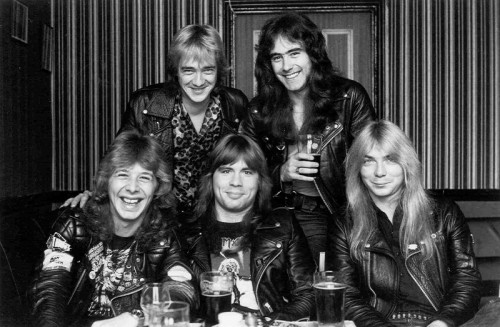
While I don’t think that The Number of the Beast is Maiden’s best record ever, I can understand the undying devotion it has received over the years. And while #7 on the list might seem like a bit low, I think it says something that quite a lot of the band’s following material with a more stabilized lineup was simply better. In some ways, Clive Burr leaving the band after this record marks the end of the first era of the band; placing The Number of the Beast somewhere in between the Di’Anno years and the stretch from 1983 to 1988, which starts with the entrance of Nicko McBrain on Piece of Mind. The band got tighter, the writing improved, and just like a future star’s rookie season, The Number of the Beast flashes brilliance, without quite being the refined product that Iron Maiden would absolutely become during the 1980s.
